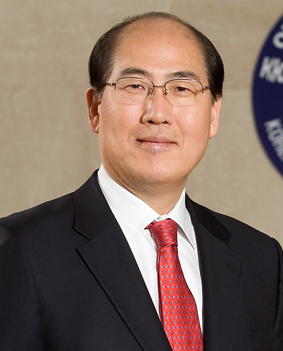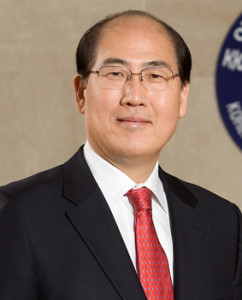

The International Maritime Organization (IMO) has elected as its new secretary-general South Korea’s Ki-tack Lim, who assumes his an initial term of four years from January 1, 2016.
Lim was elected during the 114th session of the 40-member IMO Council on June 29 to July 3. IMO, in a statement, said the Council’s decision will be submitted to the IMO Assembly for approval when it meets for its 29th session on November 23 to December 2.
Lim will replace incumbent Secretary-General Koji Sekimizu.
Lim won over five other candidates: Dr. Maximo Mejia, Jr., administrator of the Maritime Industry Authority of the Philippines; Andreas Chrysostomou, Cyprus’ acting director of the Department of Merchant Shipping; Andreas Nordseth, Danish Maritime Authority director-general; Vitaly Klyuev, Russia’s deputy director of the Department of State Policy for Maritime and River Transport; and Juvenal Shiundu, Kenya’s IMO representative.
It took five rounds of voting for Lim to collect the required more than half of the 40 votes from IMO Council members.
“A voyage together” was adopted as the central concept of Lim’s election focus. It invites all member states and stakeholders in the maritime community to join him in the voyage to create a more sustainable IMO. His action plan will focus on implementation, less burdensome and more enhanced service, enhanced capacity building, and global approach and awareness.
Lim is the current president of the Busan Port Authority. He served as Korea’s deputy permanent representative to IMO from 2006 to 2009 and was chairman of the sub-committee on Flag State Implementation from 2002 to 2004.
Lim was born in Masan, Gyeongsangnam-do, one of the major port cities in South Korea. He majored in nautical science at the Korea Maritime and Ocean University (KMOU), Busan, graduating in 1977. He worked on ships as a Korean naval officer and for Sanko Shipping Co.
He joined the Korea Maritime and Port Administration in 1985, while continuing with further studies at the Graduate School of Administration, Yonsei University, obtaining a master’s degree in 1990. He then studied maritime administration with a major in navigation at the World Maritime University, graduating with a master’s degree. In 1995 he attended a doctoral program for international law at KMOU, completing course work in 1998.
Lim began attending IMO meetings as part of the delegation from South Korea in 1986, participating in maritime safety and environmental protection issues. From 1992, he engaged in activities to promote maritime safety through implementation of IMO conventions in his country and in other IMO member states in Asia. He was elected chairman of the Tokyo Memorandum on Port State Control in 2004.
In 2006, Lim was appointed as maritime attaché, minister-counsellor at the Embassy of the Republic of Korea in London and led all IMO work for Korea, serving as deputy permanent representative to IMO up to August 2009.
Lim was then appointed as director general for Maritime Safety Policy Bureau at the headquarters of the Ministry of Land, Transport and Maritime Affairs. He led the Korean delegation to the IMO Assembly in 2009.
In March 2011, Lim was appointed commissioner of the Korean Maritime Safety Tribunal, and in July 2012, he assumed the position of president of Busan Port Authority.
IMO is the United Nations’ specialized agency responsible for safety and security in shipping and the prevention of marine pollution by ships.




